Giving employees the time, resources to “go back to school”
Consistent production is the number one priority at any plastics processing plant, but how much do most companies do to train technicians before they hand over the keys to hugely expensive (and complicated) machines that are at the heart of production?
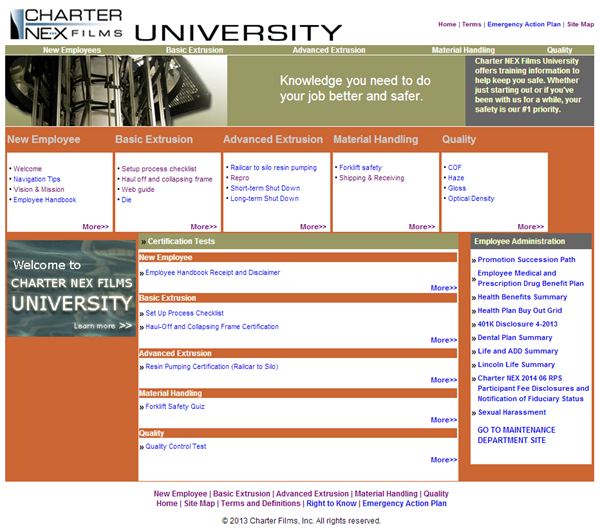
Extruder Charter NEX Films, created by the combination of Charter Films and NEX Performance Films (read the June 2014 Onsite about the company), picked up on how important training was over a decade ago as Charter Films, according to Eric Smith, general manager. Plastics processing requires consistency—same material formula run with the same machine settings and the same inspection—but that repeatability is often lacking when it comes to training.
“Historically, training was done by another operator,” Smith says, “and depending on who the trainer was and the message you received on that specific day, the consistency becomes a little bit questionable. The other thing is: how do you make sure you get the message on how to do things across to people in the correct way, because over time, things can get lost in translation between individuals.”
The University is founded
For the sake of consistency, and to make its training more regimented, then Charter Films instituted its Charter University over a decade ago. As part of the June OnSite, Jim Callari highlighted the Charter NEX University (CNU) initiative. I spoke with Smith about the program as I researched a feature on workforce development for the our upcoming September issue.
The company, which buys German-made Windmoeller & Hoelscher lines, started CNU with a focus on the high-tech machines, according to Smith.
“The idea that you’re going to take a 400-page manual and put it in front of somebody’s who come in to operate your line and train them that way just isn’t very productive,” Smith explains. Charter NEX’s solution was to break down specific components of the machine and the process and then post training modules, consisting of images, text and videos, to the company’s internal Intranet. At the end of each module, employees complete a test based on its content, to ensure the operator has seen and absorbed the lesson.
The program has evolved from integrating new workers to showing existing employees a potential career path within the company, and what knowledge they’ll need to advance down the road of promotion.
“CNU has laid out directly what employees need to do get to that next step in their job progression,” Smith says. “So it is a really a great development tool as well, in terms of saying, ‘We want our operators and our employees to grow, and here is the path they need to follow to do that.’ The sky’s the limit based on what you can do in terms of showing proficiency in developing these skills. There really was the opportunity to have people grow as quickly as they wanted to or could demonstrate.”
Living, breathing document
An overriding goal of CNU is to be continuously adapting, Smith explains, not only updating as process technology evolves, but also adding new topics, including ones outside shopfloor machinery.
“Now CNU is beyond just the training on pieces of equipment,” Smith said, noting that there are currently modules covering everything from health benefits to an employee’s 401K. “It goes beyond just the training. You’ve got a group of people who are asking, ‘What are the next topics for this living, breathing document? What is the next module that we think will be a valuable tool for the people that work in our facilities?’”
Giving employees the time, resources to learn
Another key to the program’s success: allotting time for employees to “hit the books” during their workday, with each employee provided with the time to do this development work while they’re on their shift, according to Smith.
“Employees have the ability to sit down and work through that module in the half hour or 45 minutes it takes to go through it,” Smith says, “and all of that development occurs while they’re on their shift, which shows the commitment of the company to say, ‘This is important to us, and we will provide that time for you to be able to do that while you’re here.’”
One recurring theme that came up again and again as I spoke with processors about the “skills gap” facing the U.S. manufacturing industry, was the need to look within a company’s own walls for new talent. If it’s hard to find (or pay them if you do) qualified process techs outside your company, commit to building your own in house, like Charter NEX has.
“There can be so many questions with regards to a sophisticated piece of equipment when you have somebody who really has no blown film manufacturing experience,” Smith explains “and being able to get that direct time to ask questions and have them answered—really allowing the opportunity for that development—I think that’s pretty unique in terms of a manufacturing operation.”
Related Content
The Experience Curve and Well-Trained Process Technicians
Pairing external big picture training with internal job-specific instruction can help your process technicians meet quality expectations as well as production targets.
Read MoreAmerican Injection Molding Institute Opens Mold Maintenance Classroom
The Beaumont subsidiary has opened the Mold Maintenance Center of Excellence classroom at its Erie, Pennsylvania, headquarters.
Read MoreKraussMaffei and NIAR Propel Injection Molded Thermoplastic Composites
The maker of plastics processing equipment has placed a machine and an injection molding expert in NIAR’s ATLAS lab in Wichita, Kansas, to help molding, composites and aerospace take off.
Read MoreTeaching Kids About the ‘Magic’ of Manufacturing
Making something out of (almost) nothing is an ‘eye opener’ for youngsters in their first exposure to plastics processing.
Read MoreRead Next
Things Are Adding Up Nicely For Charter NEX Films
Since Charter Films merged with NEX Performance Films about 18 months ago, the combined operation has melded the best capabilities of each company into a single business churning out a wide scope of blown films.
Read MoreLead the Conversation, Change the Conversation
Coverage of single-use plastics can be both misleading and demoralizing. Here are 10 tips for changing the perception of the plastics industry at your company and in your community.
Read MoreWhy (and What) You Need to Dry
Other than polyolefins, almost every other polymer exhibits some level of polarity and therefore can absorb a certain amount of moisture from the atmosphere. Here’s a look at some of these materials, and what needs to be done to dry them.
Read More



















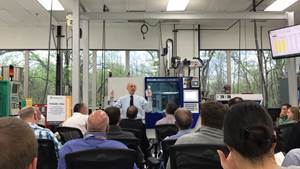
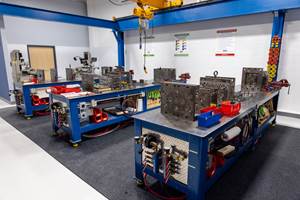
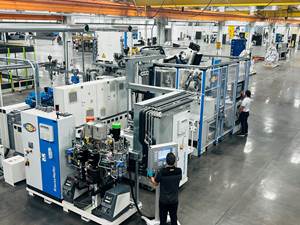
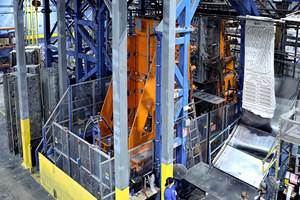
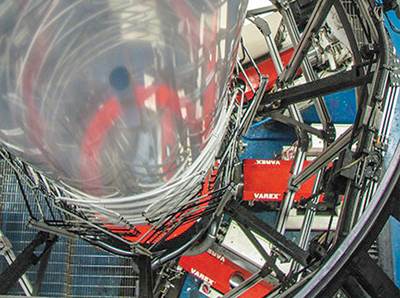

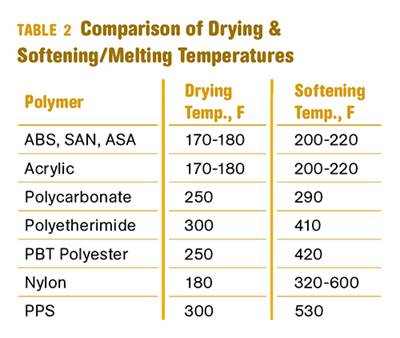
.png;maxWidth=970;quality=90)